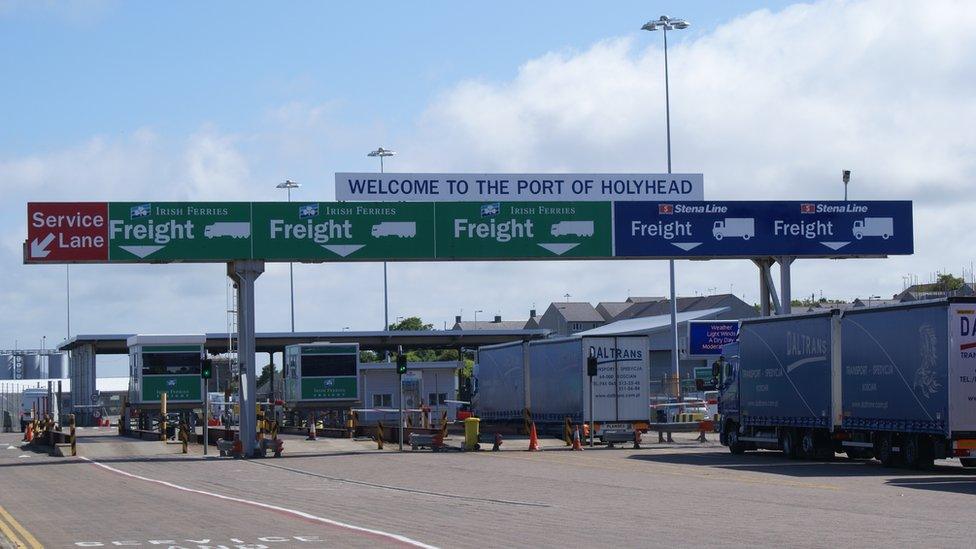Welsh ports not ready for no-deal Brexit, says Carwyn Jones
- Published
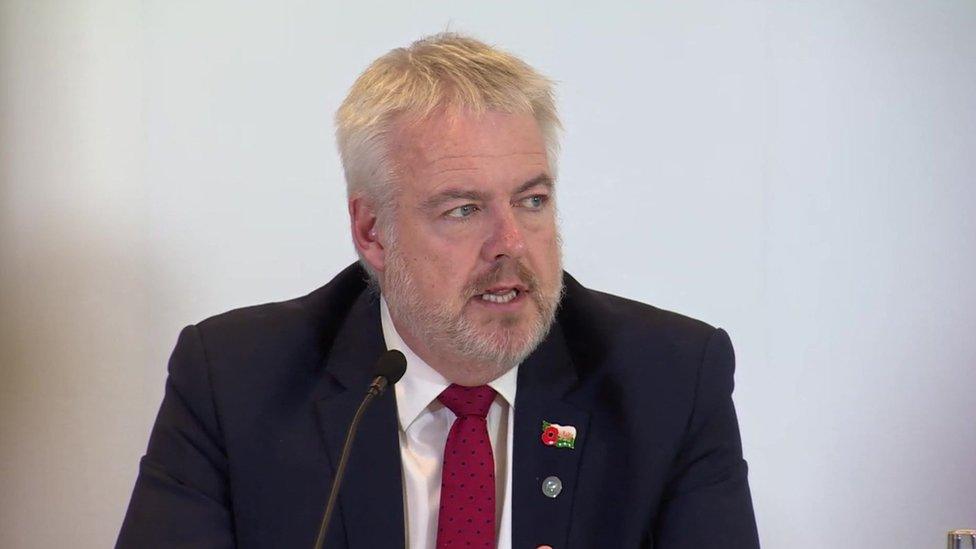
Carwyn Jones made the comments at a meeting of the British Irish Council on Friday
Welsh ports are not ready to deal with the impact of a potential no-deal Brexit, according to the first minister.
Carwyn Jones spoke at a meeting of UK and Irish ministers on the Isle of Man.
Irish Taoiseach Leo Varadkar stressed the "importance" of maintaining the high levels of trade through Dublin and Holyhead.
Cabinet Office Minister David Lidington said it was "in the interests" of all parties to reach a Brexit deal.
Mr Jones said work was being done behind the scenes but it "would not be possible to reduce the impact" of the UK leaving the EU without a deal.
Earlier this week, the UK Government's Brexit Secretary Dominic Raab came under fire for saying that he "hadn't quite understood" the importance of the Dover-Calais crossing to British trade.
Around 70% of Irish cargo destined for UK and EU markets passes through Welsh ports.
At a meeting of the British-Irish Council (BIC), the Irish prime minister said he was "very aware of the importance" of the trade link between Dublin and Holyhead port - the second busiest port in the UK.
Leo Varadkar added: "It's not just the importance of the Dublin-Holyhead link, it's also the land bridge through the UK.
"A huge amount of our trade with continental Europe goes through Holyhead then on through Dover through Calais."
"My objective when it comes to trade is to do everything we can to avoid the emergence of any new borders among any of us and that's what the European Union gave us, border-free trade between Britain and Ireland and all of the European Union," he added.
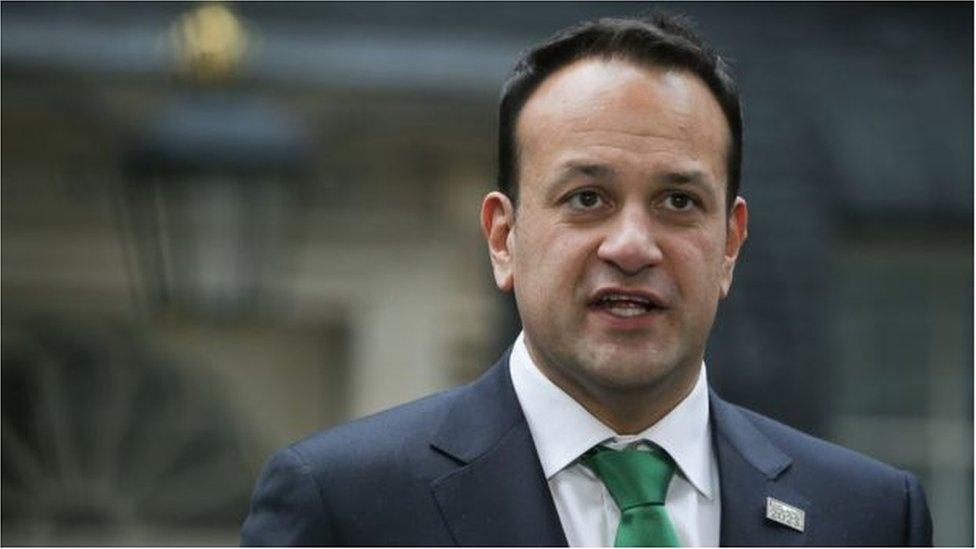
Leo Varadkar said he was "very aware" of the importance of the Dublin-Holyhead link
Asked if Welsh ports are ready to deal with a potential breakdown in the Brexit talks leading, Carwyn Jones said: "No, I don't think any port is ready to deal with that situation yet.
"We have been looking at it and we're developing plans on how to cope but the reality is of course, probably not border checks in terms of passports, but there might be customs checks that means more lorries would be checked of course, it means more delays potentially."
"That has an effect on the ports, which we control and has an affect on the roads, which we control," he added.
Ahead of the BIC meeting, Carwyn Jones said the UK government's "shambolic handling" of Brexit negotiations is to blame for potential job losses, following German automobile company Schaeffler's decision this week to close its Llanelli plant.
The first minister said the "worry and concern" could be avoided if ministers were clear a deal will be struck.
Although the prime minister has said 95% of a Brexit deal has been agreed, the UK and the EU negotiators have yet to agree on how to guarantee that the seamless, check-free border between Northern Ireland and the Republic of Ireland is maintained in the future.
On Friday, Northern Ireland's DUP - whose MPs back Theresa May's government in Westminster - accused the prime minister of breaking promises over plans for the Irish border.
A UK government spokeswoman said: "The closure of Schaeffler is a huge loss to the local area, where many factors have been at play.
"The UK government has presented a precise and credible plan for the future relationship with the EU."
- Published8 November 2018
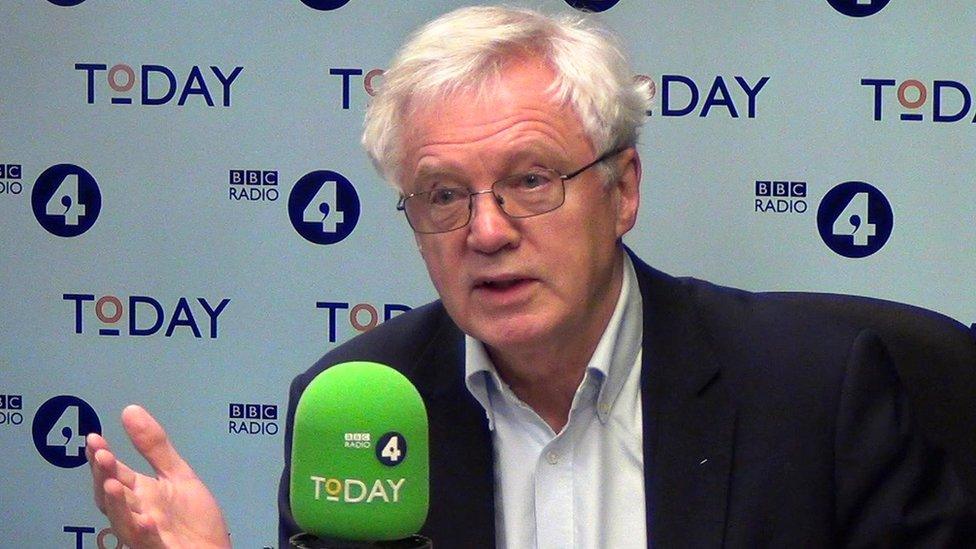
- Published7 November 2018
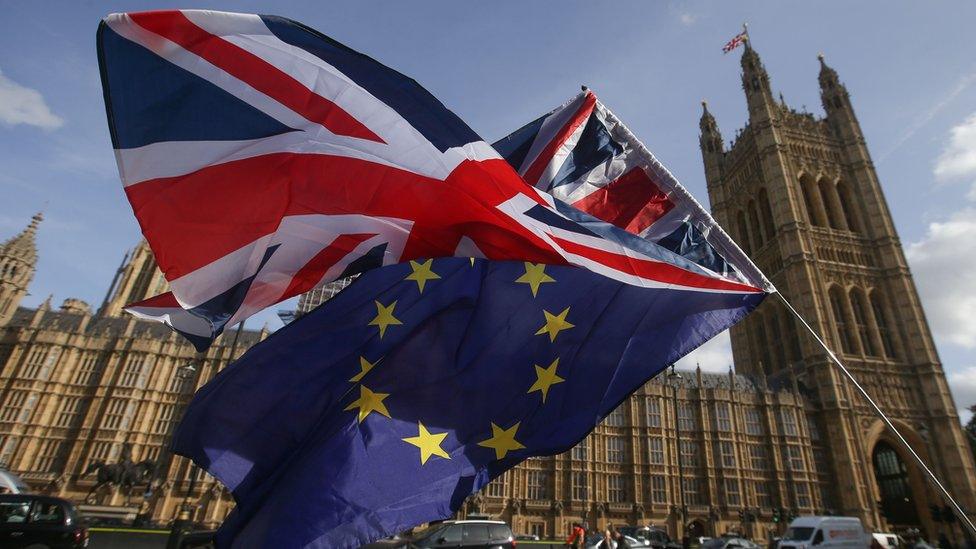
- Published22 June 2018
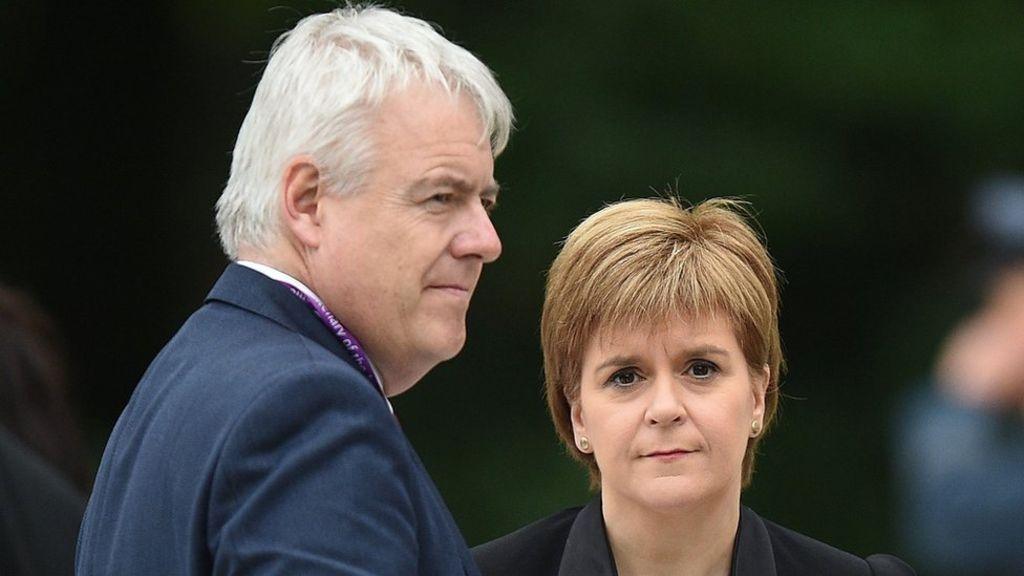
- Published17 October 2018
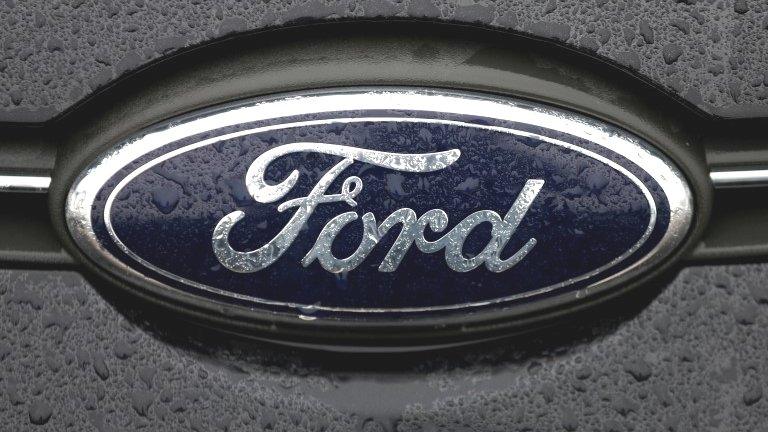
- Published11 October 2018
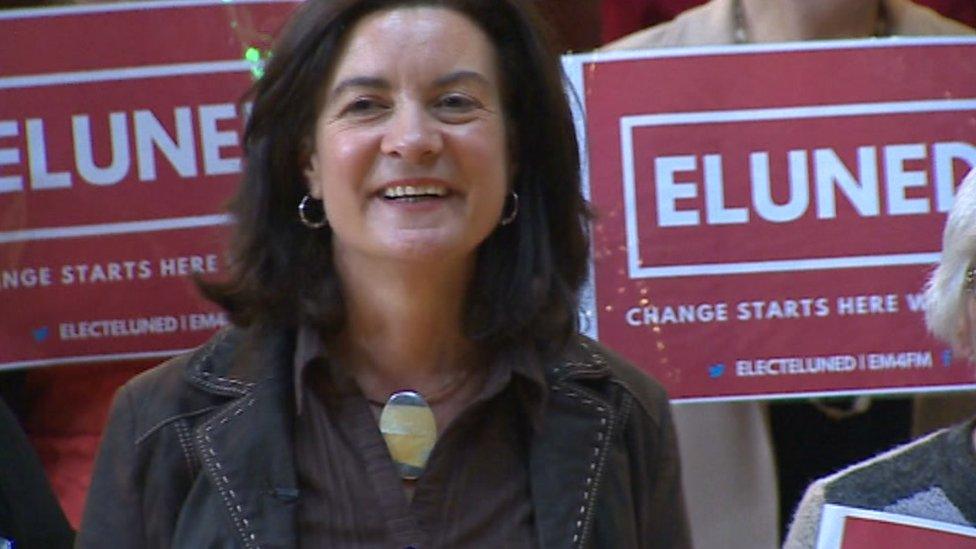
- Published12 September 2018
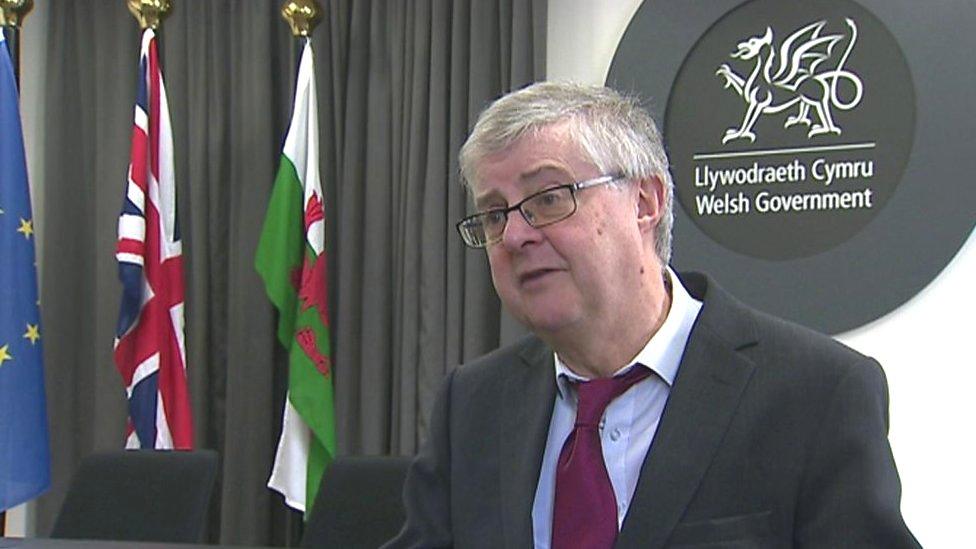
- Published12 February 2018
